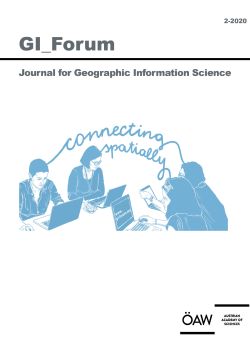
GI_Forum 2020, Volume 8, Issue 2, pp. 96-106, 2020/12/15
Journal for Geographic Information Science

Social media are everyday companions for adolescents, enabling them to communicate and share their experience of the world. With the rise of social media, location has gained importance as an organizing principle of online content. In addition, actions like taking, geotagging and uploading pictures on the go mediate space in a new way. In this article, we explore the production of space through social media, and the emerging receptive processes among young people against the background of a changed allocation of spatial meaning through digitization processes. The ubiquity of software leads to a production of ‘coded spaces’ and ‘code/spaces’. We give an overview of contemporary research within geography that examines the production of space in social media and identify possible ways of thinking about space in social media. In order to analyse young people’s spatial practices in social media, we conducted interviews with adolescents regarding their social media habits. Our first analysis reveals several spatial practices that occur on Instagram: youngsters select locations specifically for Instagram, geotag places that they deem exceptional, and edit their photos with filters. Our analysis confirms that software leads to the emergence of new spatial practices. The production and reception of space in the context of digitization raise a series of questions regarding the theoretical conception of space on social media.
Keywords: social media, spatial practices, adolescents, instragram, digital geographies